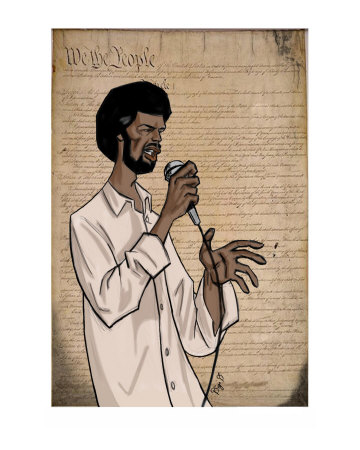I just wanted to give my thanks to kevin, and zack of the saving bells for the information that helped me write my paper, Also i thought i would give a cut of my paper that was intreasting, and relatevly less adressed than past subjects. also if you like reggae music this will be cool.
Mythic context (as I have defined as ever changing) is extremely relevant to this notion of situational representation. My poem in its totality has closure, and an explicit ending, but this is just because much of the elements in this poem are from the literate tradition. The songs that contain the epithets themselves are as Ong quoting Horace states, “[an] epic poet [that] ‘hastens into the action and precipitates the hearer into the middle of things (139)’”. This is quite an adequate explanation of why when someone looks at the lyrics of songs, versus when they are performed, the performed song seems to make more sense, even though they do not contain a lengthy back story. It is also an explanation of how Oral Poems and reggae songs such as this, invoke empathy in the listener. For example, the song Johnny Too Bad by The Slickers (the first song that is sung in my poem) seemingly has benign and irreverent jargon for lyrics to a reader. Yet when it is performed orally in verse, the sound jumps off the page, and invokes emotions that mean numerous amounts of things in Jamaican mythic context. The author of the book Cut ‘N’ Mix, a chronological study of the progression of culture in Caribbean music makes this point about Jamaican music:
“African, Afro-American and Caribbean music is based on quite different principles from European classical tradition. The collective voice is given precedence over the individual voice of the artist or the composer. The rhythm and the percussion play a much more central role. In the end, there is a link in these non-European music’s with public life, with speech with the textures and the grain of the living human voice (p.11)”
The author of this book also gives more information into how this music is steeped in the oral tradition. Paraphrasing him he makes the point that this term “versioning” is one of the most important terms that can be assigned to reggae music and its subsequent paradigm shifts. What it means is constantly rearranging songs in new formats to represent new contextual moments. For example: if a politician was shot, an older reggae song might be versioned to add another element to the song to keep up with the contemporaneity. In terms of relevance in a broad perspective, African Caribbean music has had some of the biggest impact in returning western culture to orality.
Tuesday, April 28, 2009
Subscribe to:
Post Comments (Atom)

No comments:
Post a Comment